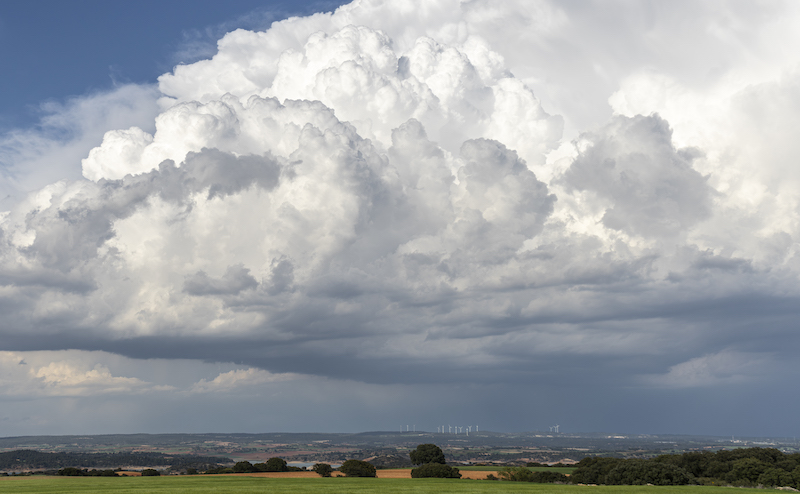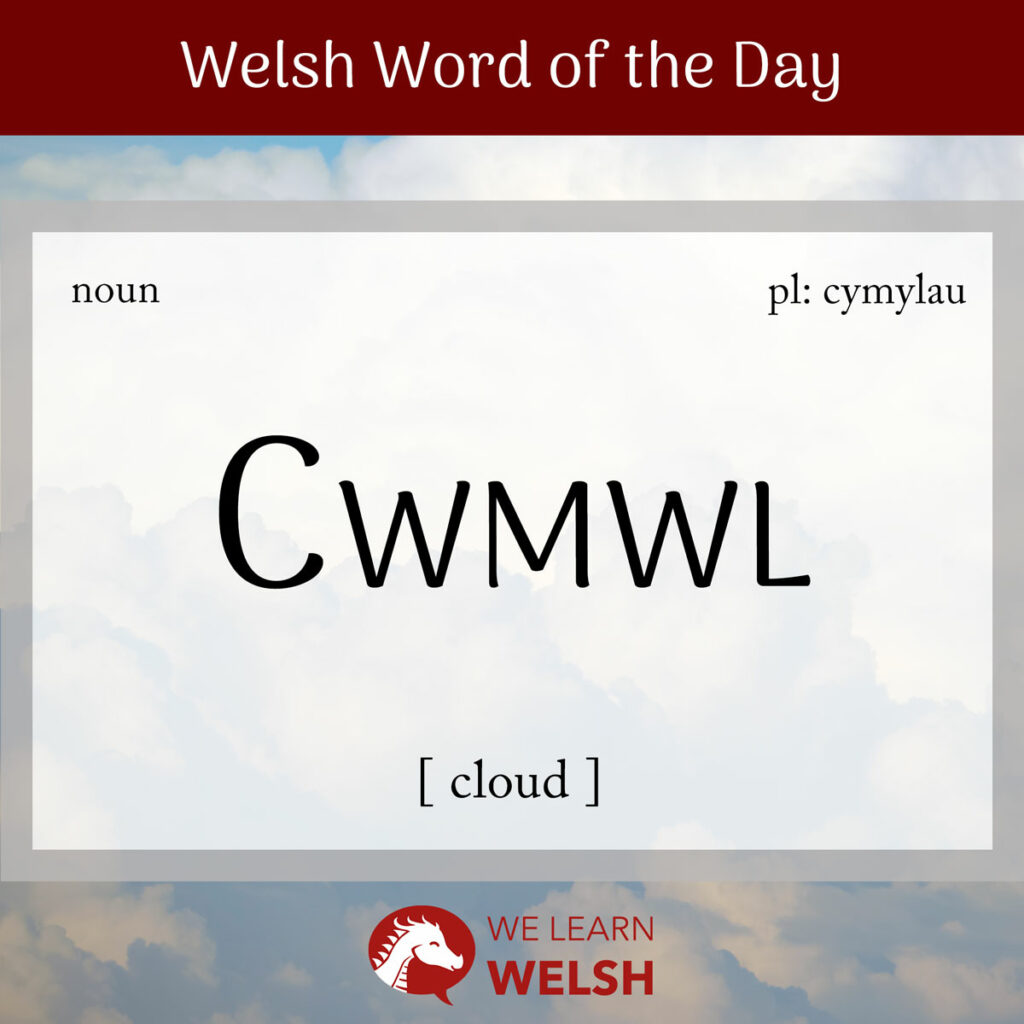Today’s Welsh Word of the Day is cwmwl (cloud). Along with glaw (rain), clouds are probably the most consistent feature of Welsh weather. Growing up, awyr las (a blue sky) was a rare sight, but it never bothered me; I remember going to the traeth (beach) on grey overcast days and having a great time in my coat and wellies!
cwmwl
cloud
Cwmwl is a masculine noun and is susceptible to all three types of mutation. It derives from the Latin word cumulus, which has also been adopted into the English language to describe a specific type of fluffy cloud.
Soft mutation
gwmwl
Nasal mutation
nghwmwl
Aspirate mutation
chwmwl
The plural of cwmwl is cymylau. Cwmwl is one of many Welsh words that undergo a vowel change between the singular and plural forms. This transition from w to y is quite a common type of vowel change. Here are some other Welsh words that follow the same pattern:
- ffwrn (oven) vs ffyrnau (ovens)
- dwrn (fist) vs dyrnau (fists)
- sŵn (sound) vs synau (sounds)
- dŵr (water) vs dyfrau (waters)
- mẁg (mug) vs mygiau (mugs)
Like the English word cloud, cwmwl can be turned into an adjective to describe the weather – cymylog (cloudy) – and it can become a verb – cymylu (to cloud). Notice that the w-y vowel change also takes place here!
Don’t get cwmwl mixed up with cwlwm! Cwlwm is another Welsh masculine noun meaning knot. Cwlwm also follows the w-y vowel pattern – the plural of cwlwm is clymau and the verb version (to knot) is clymu.
Mae hi wastad yn gymylog!
It’s always cloudy!
As well as plenty of cymylau, my upbringing in Wales featured a lot of niwl or tarth (fog/mist). I used to look out my window every morning and be greeted with a sea of niwl gwyn (white mist) coming up from yr Afon Gwy (the River Wye). I also remember drawing little pictures in the anwedd (condensation) on my window!
The watery Welsh climate also followed me to school; I learned about Y Gylchred Ddŵr (The Water Cycle) in my gwersi daearyddiaeth (geography lessons):
- anweddiad = evaporation
- cyddwysiad = condensation
- dyodiad = precipitation
I remember being fascinated to learn that the reason it was so glawiog (rainy) in my hometown was because I lived in a cwm (valley).
Like English, Welsh has different words for different types of clouds:
- cwmwl du = storm cloud (lit. black cloud)
- cwmwl boliog = cirro-stratus (lit. big-bellied cloud)
- cwmwl cawn = parallel curvy lines of cloud
- cwmwl caws a llaeth/caws a maidd = cirro-cumulus/mackerel sky (lit. cheese and milk/cheese and whey clouds)
- cwmwl pysgod awyr = long stripes of cloud that resemble fish (lit. air-fish clouds)
- cwmwl torgoch = dark cloud with red fringes
- cymylau blew geifr = cirrus, streaky clouds (lit. goats’ hair clouds)
There are also a few Welsh idioms that feature clouds:
- canmol i’r cymylau = to praise to the skies (lit. to praise to the clouds)
- rhegi i’r cymylau = to swear furiously (lit. to swear to the clouds)
- tan gwmwl/o dan gwmwl = in discredit/disfavour (lit. under a cloud)
- clymu godre’r cymylau = to stop the rains (lit. to tie the the bottom of the clouds)
Wherever you are, I hope the sky is digwmwl (unclouded) today… unless, of course, you enjoy a bit of tywydd Cymreig (Welsh weather), in which case I hope you get awyr lwyd (a grey sky)!


